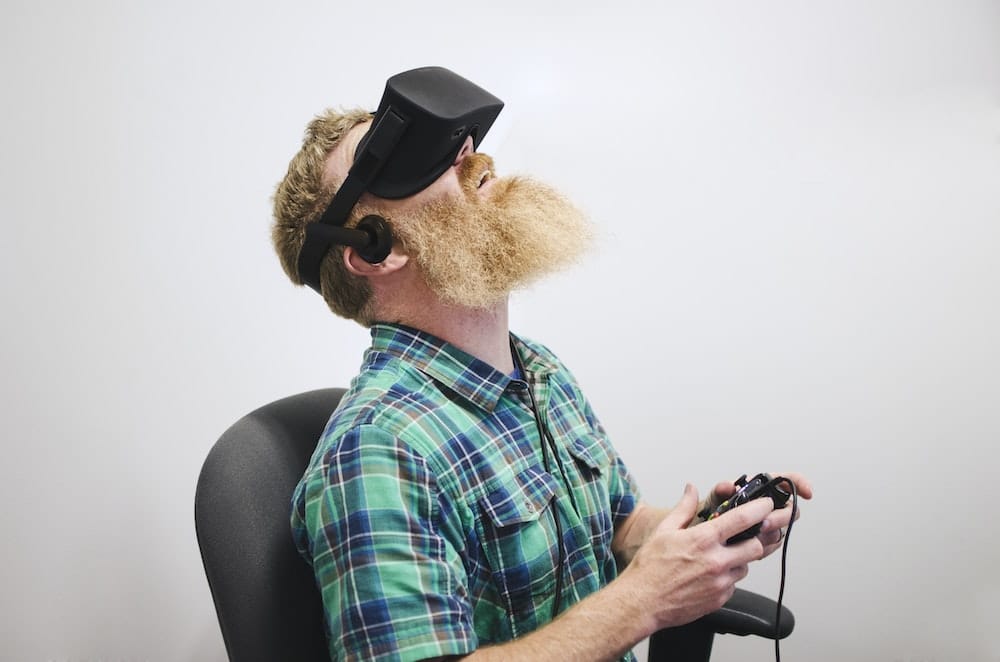In the age of digitalisation, virtual reality is growing into a powerful tool that is revolutionising various sectors. At the forefront of this transformation is the tourism industry. In the UK, an industry known for its penchant for innovation and adaptation, virtual reality is reshaping the tourism experience. The goal of this article is to analyse these advancements and provide an overview of how the application of virtual reality is driving new trends in the UK’s tourism industry.
A New Reality in Tourism
As you stroll through the virtual cobblestone streets of Oxford, your eyes are met by centuries-old buildings, bathed in the soft, setting sun. You can almost feel the crisp air on your skin, and the faint sound of students chattering in the distance makes the experience all the more real. And yet, you are miles away, sitting in the comfort of your home, wearing a pair of advanced virtual reality (VR) headsets. This teleportation-like experience is becoming a trend in the UK’s tourism sector.
Also read : How to Utilize Social Media for Effective Wildlife Conservation Campaigns in the UK?
The global tourism industry has been hit hard by the ongoing pandemic. However, the application of VR technology in the UK tourism market is providing a new avenue for growth. It allows tourists to explore destinations from their homes, view accommodations before booking their stay, and even enjoy simulated experiences of activities they plan to partake in during their trip.
As a result, virtual reality is fast becoming a key component of the UK tourism experience. Several UK-based tour operators and travel agencies are offering virtual tours, enabling people to explore popular landmarks and attractions in vivid detail, without having to leave their homes.
Also to see : How to Create a Volunteer-Driven Tech Support Network for UK’s Elderly?
Virtual Reality: A Scholarly Analysis
The integration of virtual reality in the UK’s tourism industry is not just a market response but a subject of scholarly interest as well. A recent Crossref analysis of tourism journals reveals a trend of increased research in this area. These scholarly studies are examining the potential benefits and challenges of VR applications in tourism, from enhancing visitor experiences to boosting bookings.
For example, one study explores how virtual tours can provide a more complete and immersive experience compared to traditional photo or video tours. It highlights the ability of VR to simulate the sensory elements of a physical visit, such as the sounds, smells, and even the climate of a location.
Furthermore, these studies are also investigating the economic implications of this trend, including cost savings for both tourists and operators, and the potential for increased tourism revenue thanks to the enhanced accessibility of virtual tours.
The Role of Technology Giants
The impact of technology giants like Google on this trend cannot be overlooked. With their extensive resources and reach, these companies are spearheading the virtual reality revolution in the global tourism industry.
Google, for instance, has already introduced Google Earth VR, which lets users explore different locations in 3D. This technology has been a game-changer for virtual tours, making them more realistic and immersive. Furthermore, Google’s VR technology also has educational applications, allowing scholars and students to take virtual field trips to historical sites, museums, and other places of interest.
Additionally, Google and other tech companies are investing in the development of more comfortable, affordable and user-friendly VR headsets. This technological innovation is making the VR experience more accessible and attractive to an even wider audience, driving its adoption in the UK’s tourism market.
The Market Forecast for Virtual Reality in Tourism
According to a recent market forecast, the application of virtual reality in the UK’s tourism industry is set to grow exponentially in the coming years. This trend is being driven by several factors.
Firstly, the ongoing COVID-19 restrictions have made international travel more difficult, making virtual tours an attractive alternative. Secondly, the rise of digital natives – people who have grown up in the age of the internet and are comfortable with using technology – is increasing the market for virtual reality experiences.
Lastly, technological advancements are making VR equipment more affordable and user-friendly. As the quality of virtual tours continues to improve, they are expected to become an increasingly popular option for tourists. This has potential implications for future travel trends and the tourism industry as a whole, indicating a shift towards a more virtual, experience-driven market.
In conclusion, the use of virtual reality in the UK’s tourism industry is not just a temporary trend, but a sign of things to come. As technology continues to evolve, virtual tourism is set to become an integral part of the travel experience, opening up new opportunities and challenges for the industry.
The Influence of Virtual Reality on Market Share and Volume
The introduction of virtual reality technology into the tourism industry is not just changing the way travellers explore destinations, but also influencing the industry’s market share and volume. According to market research, the incorporation of VR in tourism is expected to contribute significantly to the UK’s tourism industry’s market size, and consequently, its global market share.
One of the main factors influencing this rise is the appeal of virtual tourism to younger age groups – particularly digital natives. These individuals, who have grown up immersed in digital technology, are key contributors to the market volume of virtual tourism. They are more likely to embrace innovative travel experiences offered by virtual reality and augmented reality technologies, contributing to the industry’s growth.
Another influencing factor is the increased accessibility and affordability of VR technologies. As VR headsets become more user-friendly and less expensive, the market volume of virtual tourism is expected to increase correspondingly. The development of these technologies is also opening up new markets, with increasing interest in virtual reality tourism being observed in regions beyond North America and Europe, such as Latin America.
In the context of the ongoing global pandemic, virtual tours offer a safer and more convenient alternative to traditional travel. This has led to a surge in the demand for virtual tourism, boosting the industry’s market size and influencing its market share on a global scale.
Regardless of these promising trends, it’s crucial for the tourism industry to continue adapting and innovating to meet the evolving demands of travellers. Virtual reality is just one of the many tools that could shape the future of travel and tourism.
The Future of Virtual Reality in the UK’s Tourism Industry
The influence of virtual reality in the UK’s tourism industry is undeniable. From reshaping travel experiences to affecting market share and volume, virtual reality is emerging as a game-changer. Yet, it’s essential to remember that the virtual reality trend in the tourism industry is still in its infancy, and its potential remains largely untapped.
A market forecast suggests that the adoption of virtual reality in the UK’s tourism industry will continue to grow in the coming years. This growth is expected to be driven by advancements in VR technology, the increased demand for innovative travel experiences, and the influence of digital natives.
However, the future of virtual reality in tourism is not without challenges. These include developing immersive and realistic virtual tours, ensuring the accessibility and affordability of VR technology, and addressing concerns about the environmental and cultural impacts of virtual tourism.
Despite these challenges, the potential of virtual reality in the tourism industry is vast. As technology continues to progress, virtual reality could offer more immersive and personalised travel experiences, revolutionise the way tourists explore destinations, and even redefine the concept of travel itself.
In conclusion, the use of virtual reality in the UK’s tourism industry is an emerging trend with tremendous potential. While challenges lie ahead, the opportunities offered by VR technology are vast. With continued innovation and careful consideration of its impacts, virtual reality could become a mainstay in the tourism industry, reshaping it for the better.






